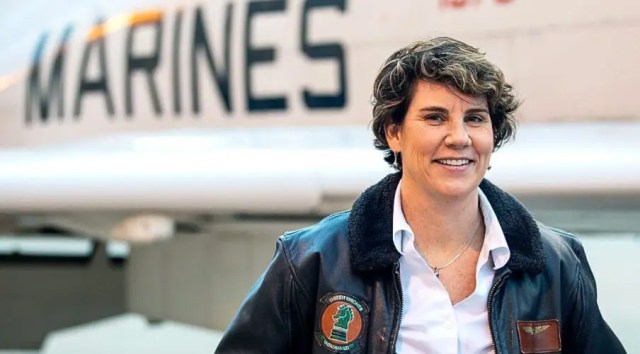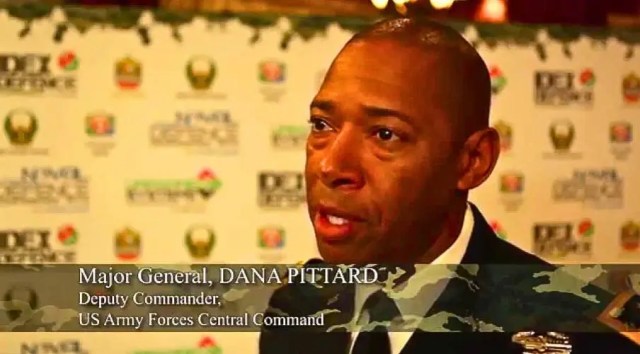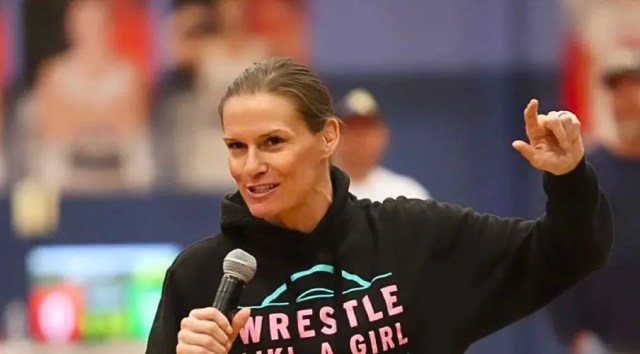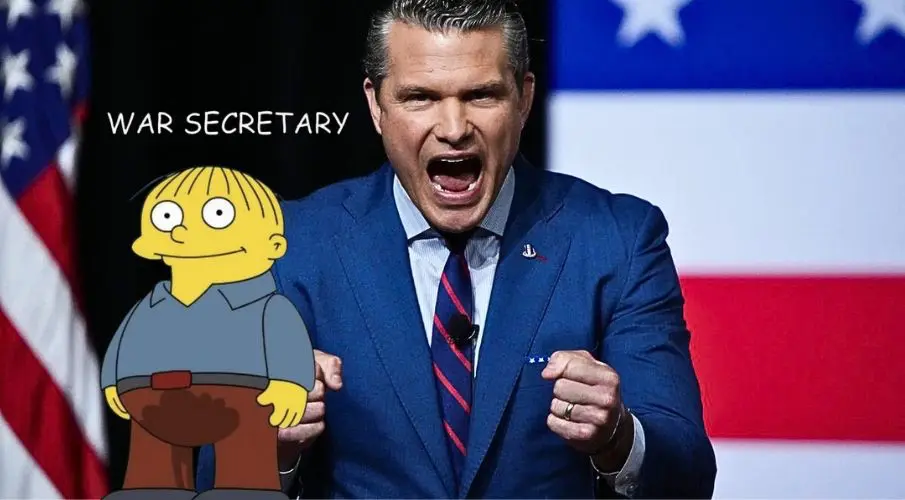The hall in Quantico was full, the stands tightly packed with generals and admirals, flag officers who have spent decades in service. One would have expected facts, strategies and sober orders to be discussed there. Instead, at the beginning of the week the audience experienced an hour that many attendees and observers perceived as an ego trip and political theater: the long-awaited address by Secretary of Defense Pete Hegseth on physical fitness, the doctrine of lethality and the alleged defanging of a “woke” military culture went far beyond the expected debate - and provoked a wave of horror. See our article: “The Dress Rehearsal for the Culture War: How Hegseth Is Politically Remaking the US Military - and Trump Summons His Generals,” at: https://kaizen-blog.org/en/die-generalprobe-zum-kulturkrieg-wie-hegseth-das-us-militaer-politisch-umbaut-und-trump-seine-generaele-beschwoert/

Veterans and former officers do not merely react critically, they are angry. “A lot of the words that are coming to me aren’t fit to print,” says Naveed Shah, once a unit journalist in uniform and today policy director of the veterans organization Common Defense. Shah sums up in a few words what many feel: the senior officers, some of whom have served for 20 or 30 years, do not need an inaugural lecture on the warrior ethos from a political entertainer. That, Shah says, is insulting - and it is dangerous.

The criticism ignites on several fronts at once. Hegseth demanded a return to tougher physical standards, questioned parts of personnel policy and railed against DEI programs. He spoke of a return to a male fitness ideal, apparently aiming to reestablish measurable masculinity norms in combat units. “If women can make it, excellent. If not, it is what it is,” Hegseth formulated roughly - a statement that female veterans reject with outrage. “When women entered combat roles, one standard was set, and we’ve been meeting it ever since,” countered Amy McGrath, former Navy pilot. Her reply is more than a statement; it is a reference to decades of service, to men and women who stood their ground under fire.

That Hegseth summoned 800 senior military officers to Quantico just to lecture for an hour meets with incomprehension. “A bad cold could have threatened our entire chain of command,” Shah says - pointed, but meant seriously: assembling so many high-ranking officers in one place, shortly before a possible government shutdown, is not only politically questionable, it also carries tangible risks for readiness. Dana Pittard, a retired general, calls the event “insulting” and “egotistical”; he speaks of a politicized staging that does not suit a democratic military.

The allegations against Hegseth go beyond offensive wording. Critics see a dangerous politicization of the armed forces in the speech. Hegseth did not merely voice criticism, he recast parts of the military as an enemy image, referring to “the enemy within” and quoting in a way that sets off alarm bells among experienced officers. The separation of politics and the military is a delicate good in a democracy; any rhetorical tilt toward culture wars instead of clear strategic leadership raises concern.

Politically the appearance further heated up the debate. California’s governor mocked Hegseth with a Simpsons meme; other commentators ridiculed the expense, the travel costs and the bad timing. Paul Eaton of VoteVets speaks of a waste of public funds and warns that such stagings undermine trust and resources. The sharpness of the reactions is no accident: this is about more than words, it is about how the military is led and how it is anchored in the political landscape.

Concrete criticism is also directed at Hegseth’s competence and background. The former TV host, now Secretary of Defense, is seen by opponents as a political activist rather than an experienced security manager. Those called to public office must expect criticism; the question is whether the criticism is justified or politically instrumentalized. In this case the voices of veterans show that the rejection is not only partisan: people who have stood where responsibility for life and security is demanded are speaking up. The central question remains: does the leadership of the Department of Defense want to strengthen the armed forces - or politicize them? Hegseth’s speech reads like a trial run: he probes, provokes and defines enemy images. But the military needs clear, reliable leadership that respects expertise and does not turn into a culture war. If leadership no longer acts neutrally, boundary erosion threatens - and with it a loss of trust far beyond an embarrassing appearance.
The veterans’ outrage is a clear signal. Not only because it reflects wounded pride, but because it demonstrates an inherent willingness to defend: defenders of democratic institutions warn against instrumentalizing those institutions. Whoever turns the military into a tool of partisan campaigns risks more than bad PR - they endanger the democratic legitimacy of an institution whose strength lies precisely in its nonpartisan professionalism. The hour in Quantico will echo for a long time. The debate has been opened: should generals and admirals be degraded to props in a political drama, or does the military remain a matter-of-fact institution that operates beyond media-hungry performances? The veterans have answered. Their answer is not only indignant, it is a warning.
Investigative journalism requires courage, conviction – and your support.
Please also strengthen our journalistic fight against right-wing populism and human rights violations. We do not want to finance ourselves through a paywall so that everyone can read our research – regardless of income or origin. Thank you very much!


Es wird Zeit, dass die Veteranen aufstehen.
Aufstehen gegen die Herabwürdigung ihrer Leistungen. Aufstehen gegen die Kürzungen im Gesundheitsbereich etc.
Vielleicht steckt Kalkül dahinter.
Lehnen sie sich auf, wird ihnen womöglich die Pension und die medizinische Versorgung gestrichen.
Und man darf nicht vergessen, dass leider viele Veteranen MAGA sind. In deren Augen sind die Demokraten Schuld an den Problemen für die Veteranen.
Fakt ist, dass die Veteranen unter allen Regierungen keine gute Unterstützung erfahren haben.
Aber jetzt geht es um substantielle Einschnitte.
Und es geht um die Frage, stehen sie Alle (aktive Militär, Reservisten und Veteranen) zu ihrem Eid auf die Verfassung?
Oder lassen sie sich politisieren und sind Mittäter beim Bruch der Verfassung?
In Deutschland 1933 haben sich die Militär falsch entschieden.
Wir wissen, was folgte.
…man muss die nächsten tage abwarten, im militär sind die nicht trump, aber die spitzen hat er besetzt, das wird spannend